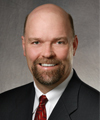15 May 2009
Hospitality Lawyer Insights from Meet the Money® 2009: The hospitality lawyers of JMBM’s Global Hospitality Group® have presented an annual hotel conference for 19 years. On May 5-7, 2009 in Los Angeles, California, nearly 400 industry leaders gathered at the Sheraton LAX for Meet the Money® 2009.
Presentations from Hotel Industry thought leaders by JMBM’s hospitality lawyers
The PowerPoint presentations from a number of industry leaders at Meet the Money® 2009 are listed with hyperlinks at JEWELS from Meet the Money® 2009 — the “best ever” hotel conference.
Commentary and observations from the hospitality lawyers of JMBM and other industry experts on some of the critical industry issues are available at Hospitality Lawyer Insights.
Here is the latest in the Hospitality Lawyer Insights series on some of the most critical issues of our day.
#5. Troubled hotel loans in CMBS – working with special servicers
Steve Van:
Steve Van
President and CEO
Prism Hotels & Resorts
214-257-1011
svan@prismhotels.com
“What is this world about? CMBS (Commercial Mortgage-Backed Securities) was a concept invented in the 90s to deal with the RTC (Resolution Trust Corporation) loans from the S&L mess, and provide liquidity to commercial lenders and real estate investors. REMIC trusts are the cornerstone of CMBS.” (Note from Hotel Law Blog: REMIC is the acronym for Real Estate Mortgage Investment Conduit, which is an investment-grade mortgage bond that separates mortgage pools into different maturity and risk classes.)
“The REMIC pool is an efficient way of handling commercial real estate loans. It has many layers (tranches), some more secure than others. Someone with a big balance sheet aggregates the loan, say $1 billion of office, retail, and hotel loans, and quickly gets them off the balance sheet and makes points.
In the CMBS world, the originator of the loan is not your lender. When you need to discuss the loan, you don’t go to a banker, you go to a “master servicer”. When the loan gets stressed it is shifted from the master servicer to a “special servicer”. The job of the special servicer is to maximize the net present value (NPV) of the REMIC trust. The special servicer must follow REMIC rules and IRS rules.
In the CMBS world, you need to get help from a professional when your hotel loan is in trouble — there is no lender to talk to when you need to work things out.”
What are special servicers doing now?
Patrick O’Neal
Patrick O’Neal
Vice President
Midland Loan Services, Inc.
913-253-9623
patrick.oneal@midlandls.com
“The special servicer can’t give advice until the loan has defaulted. The master servicer is bound by the loan documents and doesn’t have much flexibility. The loan must be transferred to the special servicers before you can discuss options. If you think you are getting in trouble with your loan, I recommend you stay in contact with the master servicer, don’t go radio silent. Explain in writing to the master servicer what is happening.”
Troy Miller:
Troy Miller
Managing Director
Centerline Capital Group
949-221-6683
tmiller@centerline.com
“We are clearing up assets right now, asset managing, figuring out what loans are coming due and what the options are today. Our total loans are around $10 billion and $3.8 billion are in special servicing. The rate at which loans are entering special servicing is increasing dramatically month-over-month.”
Curt Spaugh:
Curt Spaugh
Helios AMC
415-374-2834
curt.spaugh@heliosamc.com
“Helios AMC is made up of former GMAC special servicers. Of $30 billion in loans, $1.5 billion have been kicked over to special servicers. We are bound by the PSA (Pooling & Service Agreement) to find the best alternative to maximize the NPV of the trust.”
Jackie Brome:
Jackie Brome
Senior Vice President
Capmark Finance Inc.
949-622-9263
jackie.brome@capmark.com
“I have seen a dramatic increase in volume of delinquencies. In April 2008 it was .46% , in April 2009 it was 1.66%, and we are forecasting to reach 3 or 4% by the end of the year.”
Patrick O’Neal:
“The kind of hotels coming into special servicing are very different from those in previous downturns, with a lot of large hotels due to the decline in group business. After 9/11, a lot of hotels on the “watch list” avoided going under, because their owners had deep pockets. That is not the case this time around. We have over $5 billion in special servicing loans that are in danger of default.”
Steve Van:
“We are a hotel operator that acts as a receiver for special servicers and the FDIC. We help them increase the value of hotels they are getting back. In the last 90 days we have gotten 25 new hotels. The CMBS structure has never been under this magnitude of stress. The special servicers are overwhelmed today with 2% loan default rates. What happens when default rates go to 4%? How are special servicers going to handle this?”
Curt Spaugh:
“We have to think outside the box. If things come in at an accelerated pace we may have to have foreclosure sales. We will need quicker resolutions.”
Creating value: How the SAVE® program
can help lenders and borrowers
Patrick O’Neal:
“I find it interesting that borrowers are calling me and asking me what they should do to save their asset and stay in business. Unfortunately, that is the borrower’s problem to solve, not the lender’s problem. As a borrower, you need to bring a realistic and workable proposal to the table. No one wants your property, so let’s talk.”
Jack Westergom:
Jack Westergom
Managing Director
Manhattan Hospitality Advisors, Inc.
310-798-8863
jwestergom@mha-online.com
“Patrick said it very well. If a borrower wants to keep a troubled asset or get concessions from the lender, he must present a PLAN to the special servicer to show how things are going to get better. What is the blueprint? What is the focus? Why should the lender do anything other than exercise its rights under the loan documents? The right program may get the lender’s cooperation and actually make everything better for everyone. But it can’t be “business as usual.”
We work with JMBM’s team on the SAVE® program to help lenders and borrowers maximize the value of an asset by a very proactive approach of analysis to spot problem areas of liability and ways to drive revenues, while containing costs, and managing capital expenditures. Jim Butler’s team examines the legal encumbrances such as management, branding, labor and other matters affecting the hotel’s values for strategic analysis.
And we put this all together in a comprehensive report, with an executive summary of alternative recommendations and strategies . . . and all the detail to back it up. This is the SAVE® program report. When agreed to by lender and borrower, it becomes the “plan” or the blueprint to improve the asset.
[For more information on the SAVE® program, click here or GOOGLE “JMBM SAVE program.”]
Patrick O’Neal:
“That is right, Jack. We need a plan — a rational and compelling reason to leave the borrower in possession of a property on a defaulted loan. And it is up to the borrower to present a proposal. You need to be smart about what you are trying to do. Remember, our responsibility is to the bond holders, we are bound to return the most amount of money that we can.
Show us how to drive income! Look for revenue enhancements. All hotel assets have hidden value. How can you get more revenue out of each guest? Can you negotiate better contracts with operators, unions, and vendors? And what about CapEx? Are there any owners that haven’t told operators that CapEx is frozen, except for safety and compliance issues?”
Jack Westergom:
It is possible to improve almost any substantial asset. The value enhancement through the SAVE® program is often as much as 20 – 30%, and some cases can actually double the value of an asset. That is the kind of program that lenders want to see. If you can’t figure out how to do this as a borrower, then you may not be a very good steward of the asset for your lender. And we may well help your lender do it after they take the asset back.
We can extend the lender’s capabilities and staffing capacities, and deal with issues at the property level that the lender can’t possibly handle, and that the owner and operator have not been able to deal with effectively.
Troy Miller:
“On the CMBS side, asset managers need to run through the business plans of every single deal to figure out how to maximize the value. Strategic partnerships with capital, and operating partners that can infuse capital into the asset, or those that find new operators, can succeed.”
Jim Butler :
Jim Butler
Chairman, Global Hospitality Group
Jeffer Mangels Butler & Marmaro, LLP
310-201-3526
jbutler@jmbm.com
“We have seen situations where borrowers were ready to hand back the keys, but through the SAVE program analysis, we have been able to create enough value that it actually gives the lender a reason to make it worth the borrower’s while to stick with the asset and implement the SAVE plan. Sometimes the lender may be willing to release guarantees or collateral, or even make payments to the borrower to stay with the asset.”
Jack Westergom:
“You can’t expect the lender to know the specifics of the market you are in, or all the market drivers. You can’t expect the lender to figure out how to drive revenue and solve a lot of property-level problems, or manage the manager. You have to present all the information and a compelling approach.”
What’s different ‘this time”? What tips do you have?
Jackie Brome:
“A few observations about what we are seeing: The biggest loan defaults are coming in the 2005, 2006 and 2007 securitizations. If loans were made in those years, there is danger of default.
We cannot provide a list of defaulting loans to investors, but we may market the property through the receiverships. Typically, the receiver gets a broker to handle the sale.
If the loan is of older vintage, it’s more likely that we will pursue a foreclosure and come into chain of title, which will go into the REO department at Capmark. We are also doing note sales – we engage a note sale advisor to reach as many note buyers as possible. Investors will have to contact note sales advisors to find out about those.”
Patrick O’ Neal:
“Note buyers should be aware that even if a borrower paid too much relative to today’s market it doesn’t mean the actual real estate is worth less. If it is not levered up to 85%, it might work. You have to look at the underlying asset. If it is a quality physical structure, I might be willing to hold it for 3-5 years, just for preservation of capital. When the PSA was written it didn’t contemplate the world we are living in today, where defaults are hitting hard and fast, worldwide.”
Steve Van:
“Another difference this time around is that we will see actual closings of hotels. They will go ‘dark.’ Last time, hotels kept operating while they got worked out.”
Patrick O’ Neal:
“It’s frustrating out there for borrowers and investors trying to get involved in CMBS. There is an avalanche of assets hitting us. It can’t be quickly handled due to the volume. Something that should take 3 days is taking 30 days. Other institutions have already written loans down, done “mark to market”. CMBS is different — you have a private owner with a first loss piece.”
Jim Butler:
“To help lenders and borrows better evaluate their alternatives, and formulate action plans, I have put together something I call “Butler’s Matrix”. This is just a handy analytical tool to summarize the considerations that suggest solutions for troubled hotel mortgage loan defaults.
When do the circumstances suggest a workout, receivership, deed in lieu or bankruptcy? And while lenders often find it useful, it can also help a borrower better understand lender concerns and motivations when formulating a proposal to their servicer. (See Butler’s Matrix“).
Stephen Krooth:
Stephen Krooth
President
Krooth Advisory Services LLC
917-494-1028
skrooth@kroothadvisory.com
“Buying CMBS debt is very complex in underwriting and in due diligence. You are going to be working with complicated agreements. Understanding the PSA is as important as understanding RevPAR.”
This is Jim Butler, author of www.HotelLawBlog.com and hotel lawyer, signing off. We’ve done more than $87 billion of hotel transactions and have developed innovative solutions to unlock value from troubled hotel transactions. Who’s your hotel lawyer?
________________________
Our Perspective. We represent hotel lenders, owners and investors. We have helped our clients find business and legal solutions for more than $125 billion of hotel transactions, involving more than 4,700 properties all over the world. For more information, please contact Jim Butler at jbutler@jmbm.com or 310.201.3526.
Jim Butler is a founding partner of JMBM and Chairman of its Global Hospitality Group®. Jim is one of the top hospitality attorneys in the world. GOOGLE “hotel lawyer” and you will see why.
JMBM’s troubled asset team has handled more than 1,000 receiverships and many complex insolvency issues. But Jim and his team are more than “just” great hotel lawyers. They are also hospitality consultants and business advisors. For example, they have developed some unique proprietary approaches to unlock value in underwater hotels that can benefit lenders, borrowers and investors. (GOOGLE “JMBM SAVE program”.)
Whether it is a troubled investment or new transaction, JMBM’s Global Hospitality Group® creates legal and business solutions for hotel owners and lenders. They are deal makers. They can help find the right operator or capital provider. They know who to call and how to reach them.










